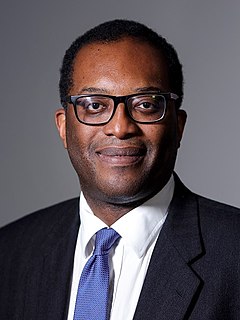A Quote by John Sulston
There's always a tension between those who would like to garner wealth, and they contribute a lot to society. There's also those who say, 'I believe in the common good. I want that to be enlarged.' They contribute a lot to society. The tension, the debate, between these two views is extremely important to our progress.
Related Quotes
There are always rebels and radicals, I suppose,' McCleethy allows. 'Those who live on the fringes of society. But what do they contribute to the society itself? They reap its rewards without experiencing its costs. No. I submit that loyal, hardworking citizens who push aside their own selfish desires for the good of the whole are the backbone of the world. What if we all decided to run off and live freely without thought or care for society's rules? Our civilization would crumble. There is a joy in duty and a security in knowing one's place...It is the only way.
The classics of Marxism talked of communism as a society to which a modern society should aspire, a society truly fair, where the relations of monetary exchange were not the priority but one wher the people's needs could be satisfied, and where people would not be worth more according to how much monetary wealth they acquired. Instead their value would be based on their contribution to society as a whole. It would be a society without class that would accept people based on their capabilities and their potential to contribute to that society.
Our society and our organizations have learned to value masculine, 'quick-fix' traits in leaders. In a primitive society, a rural society, or even the industrial society of the early 1990s, quick fixes worked out all right. But they are less likely to work in a complex society. We need to look at long-range outcomes now. Service and patience are what can keep things running effectively today and women can contribute a lot in both of these areas.
The Social Security program is a pact between workers and their employers that they will contribute to a common fund to ensure that those who are no longer part of the work force will have a basic income on which to live. It represents our commitment as a society to the belief that workers should not live in dread that a disability, death, or old age could leave them or their families destitute.
In terms of the game theory, we might say the universe is so constituted as to maximize play. The best games are not those in which all goes smoothly and steadily toward a certain conclusion, but those in which the outcome is always in doubt. Similarly, the geometry of life is designed to keep us at the point of maximum tension between certainty and uncertainty, order and chaos. Every important call is a close one. We survive and evolve by the skin of our teeth. We really wouldn't want it any other way.
In terms of my relationships with a lot of the adult characters, when I was working with Harrison, it wasn't like a verbal agreement, but we both understood that because there was this constant tension between our characters, we couldn't say "Cut" and start acting normal. We had to keep an essence of that relationship in our characters off screen which is really important.





































